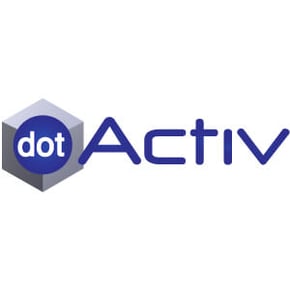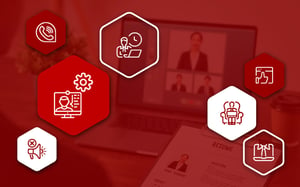Everyone who has ever been job hunting before knows that it can take time to find a promising job opportunity. It’s also stressful because finding a promising job opportunity is only half the battle. There is also the job interview. The one where you hope that you make a good first impression enough to show your potential employers that you can do the work.
It doesn’t help then that virtual interviews are fast becoming the norm. It brings new challenges and anxieties that you might not have had to worry about before. However, it shouldn’t cause you more anxiety than necessary. An interview is an interview, regardless of how it’s conducted.
With that in mind, DotActiv’s HR team wanted to provide you with a few key online interview tips that can help you to ace your next job interview.
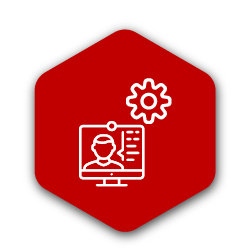
1. Prepare, prepare, prepare
In the midst of lockdown, it is no secret that many candidates may be actively hunting for new jobs.
To stand out from the rest of the talent pool, your preparation is of utmost importance. Here are some tips to make sure your preparation is spot-on:
Google some of the most commonly used interview questions and rehearse your answersGoogle some of the most commonly-used interview questions.
You can even get a family member or friend to act as the interviewer. This can help you to relax since you can practice how you react to questions. After answering the questions, you can even ask for feedback on how your answers came across. You could also debate how best to answer a particular question if you’re struggling with it.
Do not forget to add some creativity to your answers (i.e don’t be a robot add some personality)This feeds into the above tip - when answering any question, it’s not always about sticking to a script. Yes, there is a time and place for that. But if there is room to elaborate on a story that applies to the question, then by all means use it. It’s important to note that when companies interview people, it's not only about your knowledge and expertise. They’re also likely interviewing to understand if you’re a cultural fit. In short, do they believe they can work with you or not? You can be the best candidate for the role, but if you clash with the interviewer, the chances of your working there can decrease.
Elaborate on your own experiences and knowledge and how that would suit the role at handWhen interviewing for a role, it’s not just about finding out who you are as a person. They also want to know if what you’ve written on your CV isn’t just words. That means providing practical examples of how you’ve used your experience and knowledge in similar roles at previous companies. If you don’t have the necessary experience, don’t worry - hopefully, you can still fall back on your knowledge to explain why you’d suit the role.
Three are a few variations on this question, as pointed out by Alison Doyle. Knowing them can help you better formulate an answer.
Asking the interviewer questions about the role is a great way to show interest in the company and the roleIn any interview, be it online or in-person, 90% of the time you’re answering questions about your experience, your knowledge and how you’re fit for the role. That means you can easily find yourself focusing on this portion of the interview and completely freeze when the person interviewing you asks you if you have any questions for them.
Don’t be that person - when you prepare your answers to potential questions, write down a few of your own. They can be as basic as asking your interviewer how they enjoy working for the company. Or, as complex as how the company approaches culture.
You can tell a lot about a company by the way your interviewer answers your questions and it can help you to determine whether you would want to work for them if you’re offered the position.
Try to keep your questions focused around topics of the company culture, duties of the role and so forthWhen formulating your questions, it’s key to be focused. Focus on any important aspects that will affect how you do the job. That includes questions around company culture, the aspects of your role and so on.
It isn’t a good idea to bring up questions that aren’t pertinent to your role. For example, in most instances, it’s not a good idea to ask about how quickly you can get a promotion. Or, if they have to check references or do background checks before hiring you. Such questions will put your interviewers on guard.
Not sure where to start? Here are a few to get you started.
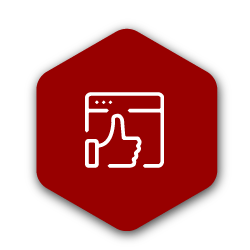
2. Test your technology and connection prior to the interview
Make sure to set aside adequate time before your online interview to test your video and audio settings. Do you have a stable internet connection? Is your computer functioning properly?
This is especially important if you are using a new device or an application that you are unfamiliar with. If you’re nervous about how you’ll interview online, practice.
It’s important to note here that you should test your technology at least the day before your interview as well as a few hours before on the day of. In so doing, you can pick up any issues in time and fix them if you need to. It’ll also reduce any anxiety.
It comes back to your preparation. Prepare, prepare, prepare. In truth, rather be overprepared. After all, it would be unfortunate to prepare exceptionally well, only to be let down by technology.
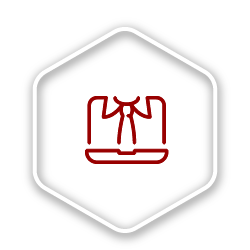
3. Dress the part
Even though your interview may be taking place in the comfort of your home, it is important to still dress appropriately and to present yourself professionally. You should read an online interview the same as if you were attending the interview in person.
Thus, be sure to dress neatly and professionally.
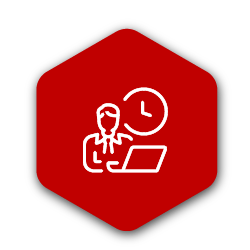
4. Be on time
Since joining an online interview is as easy as clicking on a button, there are fewer excuses for being late.
For example, when the interview is taking place in the comfort of your home, you can’t blame the traffic. If you are running late due to unforeseen circumstances, let your interviewer know as soon as possible and reschedule if necessary. Life can get busy and there are moments when you have to reschedule.
However, what is not acceptable is when you’re late for your meeting and you don’t inform the interviewer. Apologising during the interview for your tardiness is too late. Remember everyone's time is precious.
First impressions are important and being on time will count in your favour.
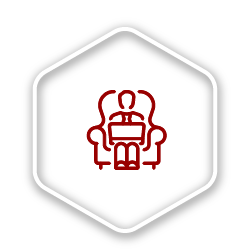
5. Body language is still important
It can be challenging to communicate using body language during a virtual interview. However, this is still a very important communication cue. Be sure to smile often and make eye contact with the interviewer.
Nodding and asking questions is also a great way to show that you are actively listening to what is being said.
If you’re camera is positioned such that it appears like you’re not looking at the interviewer (and you can’t change it), you can always let your interviewer know. As strange as it sounds, that might even help you to break the ice as your interviewer could relate to that frustration.
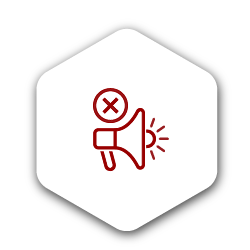
6. Get rid of any potential distractions
When attending a virtual interview, make sure that you remove any distractions that could disrupt your attention (or the interviewer’s attention) and throw you off your game.
This also includes ensuring you have a quiet place to conduct the interview without anyone walking in on your interview. It may be a good idea to leave your cell phone in another room and perhaps your cat that enjoys jumping on your keyboard ...
This also includes ensuring that you have a neat backdrop for your interview. It would not be very professional to have your dirty laundry or inappropriate decor in your backdrop during your interview. Many online meeting applications allow you to blur your background or even select a more suitable background that may be worth researching.
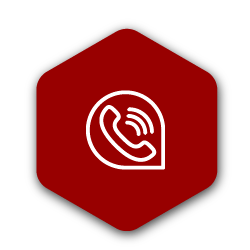
7. Follow up
After your interview, it is always a good idea to thank your interviewer for taking the time to conduct the interview. Use this as an opportunity to highlight what you enjoyed about the interview rather than urging for feedback.
Conclusion
Although there may be many challenges in these uncertain times, it is important to remain positive in your job search. We hope these tips will help you ace your next online interview!
Interested in working at DotActiv? You can find out more about what positions are open here.
